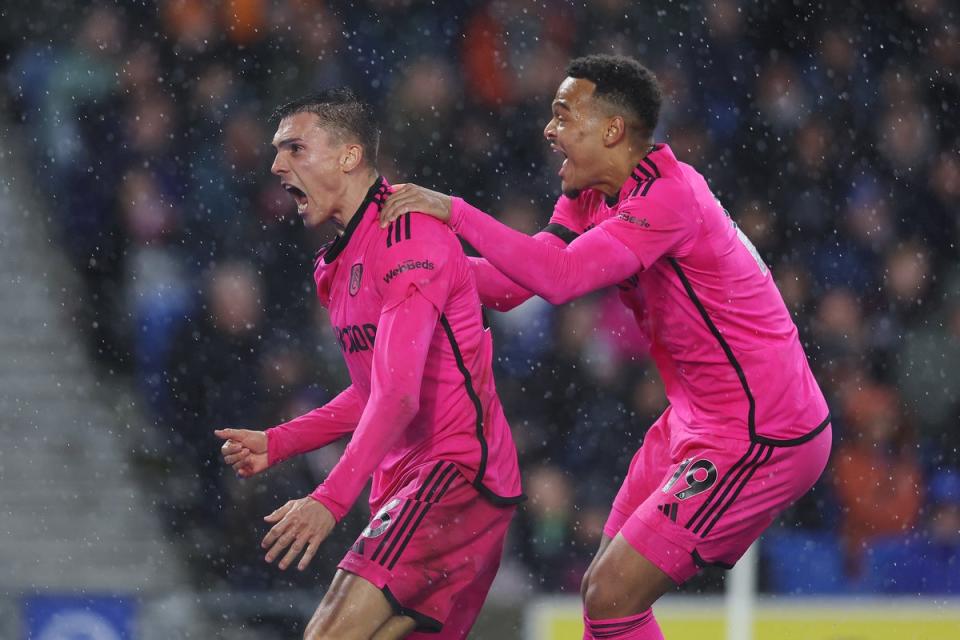Fulham: Marco Silva hails 'leader' Joao Palhinha after Brighton draw

Marco Silva hailed Joao Palhinha a “leader by example” after the Fulham star rescued his side a point at Brighton.
Palhinha struck a long-range strike into the top corner in the second half, earning Silva’s side a 1-1 draw at the Amex in a game in which they were trailing to Evan Ferguson’s calm finish.
Portugal international Palhinha has been a revelation since signing for Fulham last summer for just £17million. He was the subject of a £58million bid by Bayern Munich in August and travelled to Munich on transfer deadline day. But Fulham ended up rejecting the deal and Palhinha has been one of the top performers since returning to the team.
“Good goal to equalise the game, in a moment when we pressed them really high”, Silva said. “It was important in that moment that I saw our team reacting, playing like I want Fulham to play every time, winning the ball in the right areas.
“The finish was great from Joao. But until that moment, everything was really good. It was a moment to celebrate the emotions of the game. The reaction after the goal was really good.
“He leads by the attitude. Clearly, he’s not the most vocal guy. He’s improving his English as well. To lead in that position is really important, for Joao, for Sasa Lukic, and for Harrison Reed. To lead by example, I want to see Joao doing it more. His attitude, commitment, the way he lifts others around him — it is not easy to find in football. In moments when we lose the ball, his reaction is impressive.”
Silva felt his side were error-prone and passive in the first half but rallied after the break to wrestle control into their favour.
“We didn’t reach the standards that we have to, to compete at this level”, he said of the first 45. “We were not dynamic, not sharp enough. We were not aggressive enough — probably [showed] too much respect for Brighton.
“The second half was completely different. We were much more on the front foot, much higher. It was much more a collective pressure. And on the ball we had much more belief and confidence to play and made them more uncomfortable on the ball.”
